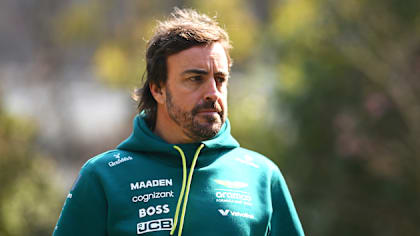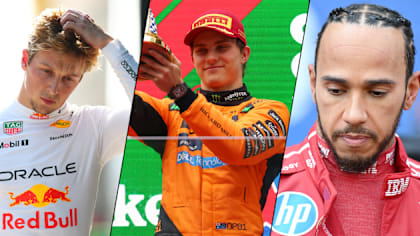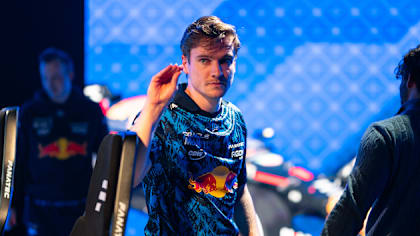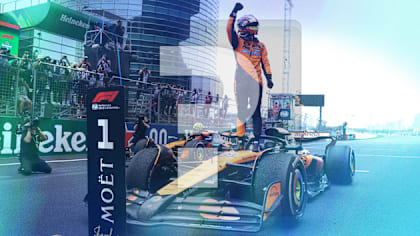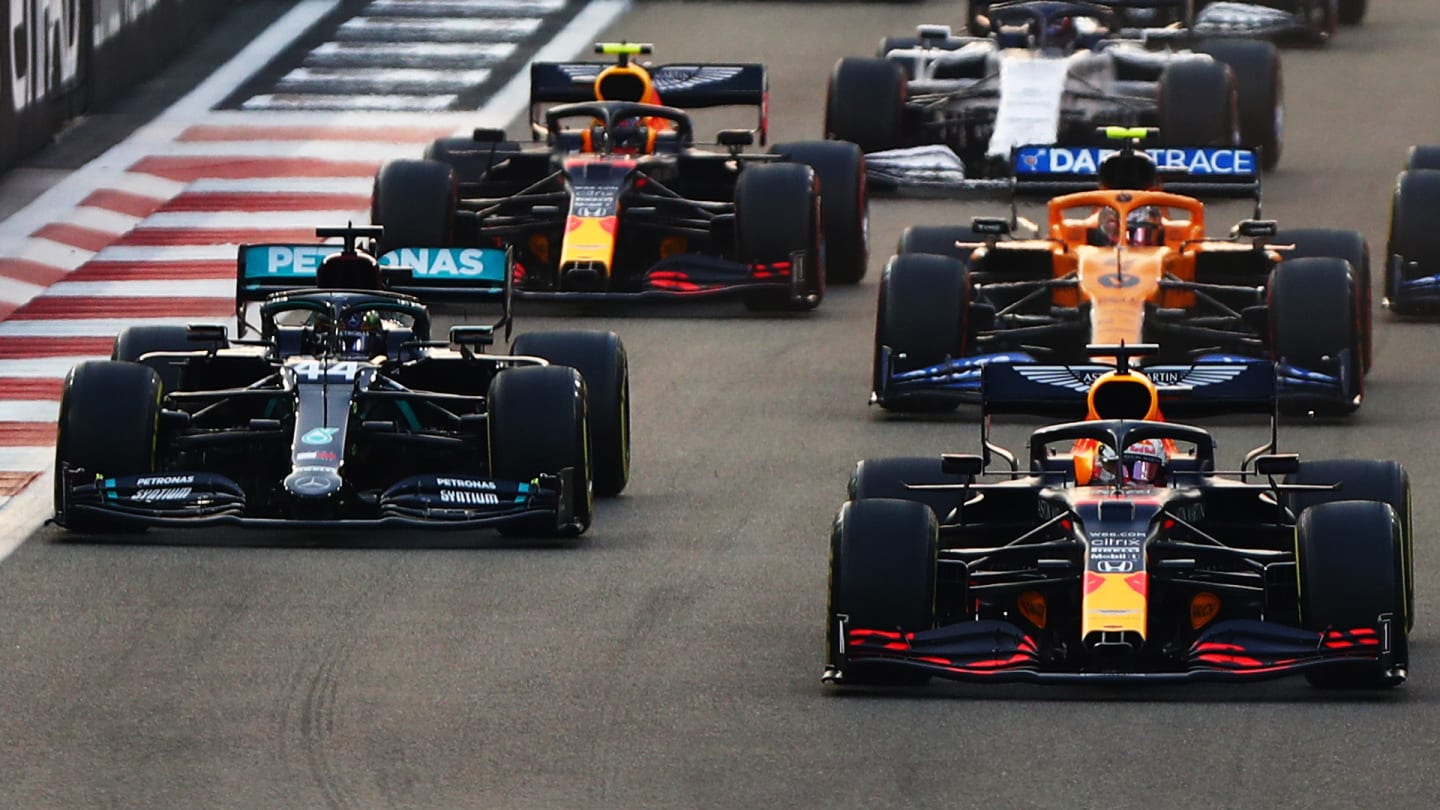
Feature
STRATEGY GUIDE: What are the possible race strategies for the Abu Dhabi Grand Prix?

Share

A new track layout and diverging tyre choices to start the race on from the title contenders have set the Abu Dhabi Grand Prix up beautifully, so we take a look at the different strategic options that are available to the teams ahead of today’s season finale at the Yas Marina Circuit.
What are the likely strategies for the frontrunners?
A bit like the previous race in Jeddah, the target is an obvious one for both Max Verstappen and Lewis Hamilton. Although they each start on a different compound of tyre (Verstappen on the softs and Hamilton on the mediums) they are both aiming to make a one-stop strategy work with a second stint on hard tyres.
For Verstappen, the target is to reach at least Lap 15, and then continue as close to Lap 20 as possible before making his pit stop. If he retains the lead at the start then the timing will be crucial, though, because if he goes too early then Hamilton might have too much pace in hand in clear air and be able to overcut the Red Bull.
But Verstappen also has to guard against an undercut that could come as early as Lap 15, given that’s when the one-stop pit window opens. Hamilton could try and use the advantage of fresh hard tyres against Verstappen’s aging softs to get ahead, but if not then he will look to run longer – up to Lap 27 – and use the tyre offset to attempt to attack later on.
If Hamilton manages to get ahead of Verstappen on the opening lap, however, then the equation becomes a lot harder for the Red Bull driver, because his soft tyres are more susceptible to overheating behind another car on high fuel, and staying close enough to threaten with an undercut of his own could be a challenge.
If Verstappen wants to try a two-stop strategy, he’s going to need clear air and to get a full pit stop clear of the chasing pack before making a switch to hard tyres. From there, a final stint for mediums is possible as the rest of the field falls even further back from the pace being set at the front, but the first pit stop timing comes with a risk of being released into traffic and losing significant time.
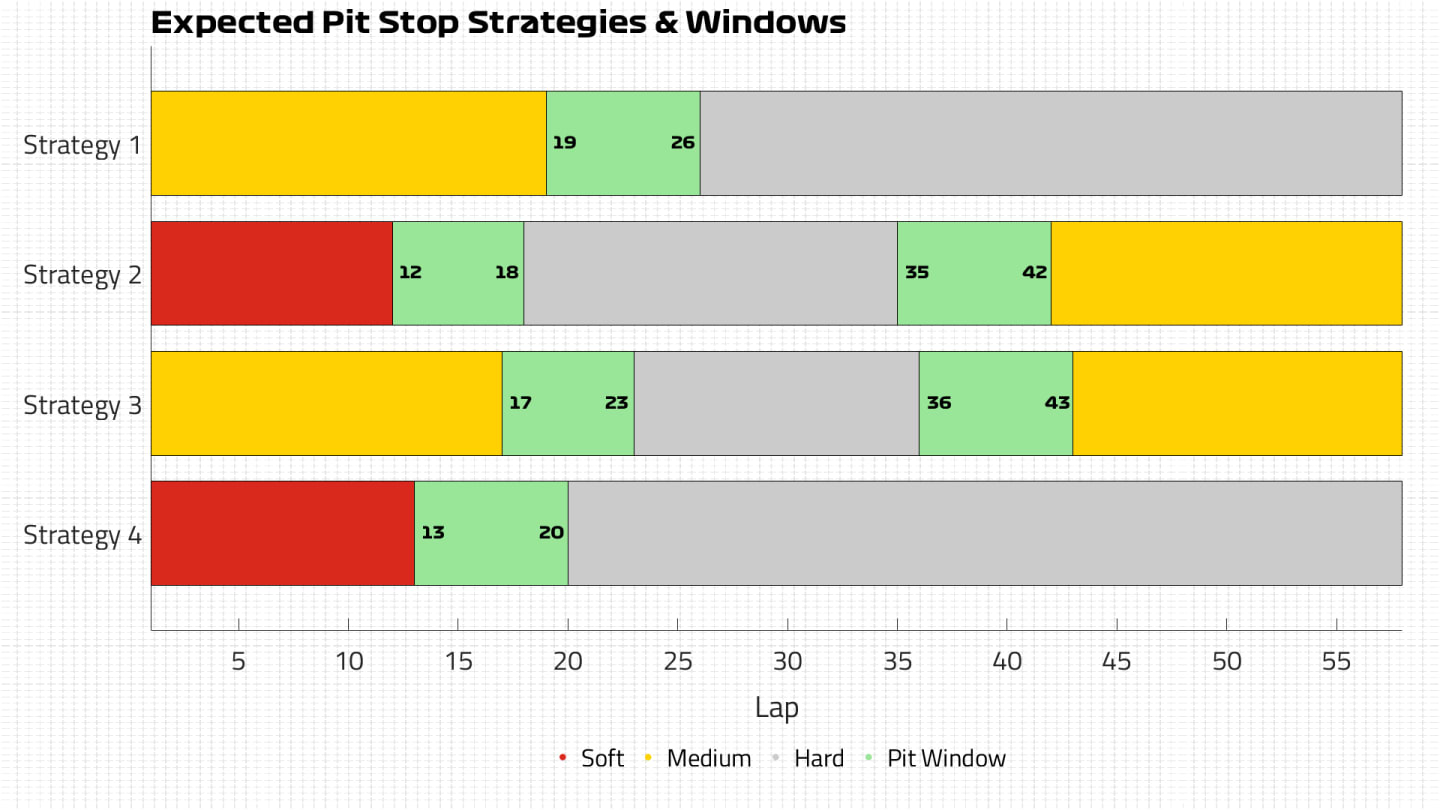
How about the rest of the top 10?
The majority of the top 10 went for soft tyres in Q2, partly due to the need to confirm their positions in the top 10 but also because they feel the overall race strategy is not overly hurt by being on that compound.
The soft provides an advantage off the line – with more grip from the softer compound – and can still be part of a one-stopper, but requires a bit more pace management. If an early Safety Car comes into play, a pit stop for hards at that point would then lead to a likely two-stop strategy with a switch to mediums for the final stint.
Aiming for a straight two-stopper – starting on softs and switching to hards after 12-18 laps before a final stint on mediums – is possible but much more risky given the likelihood of emerging in traffic after the first stop.
Valtteri Bottas and Yuki Tsunoda are the only other two drivers starting on the mediums in the top 10, and they’ll be looking to simply run as long as possible, creating a tyre offset to take advantage of in the latter stages of the race.
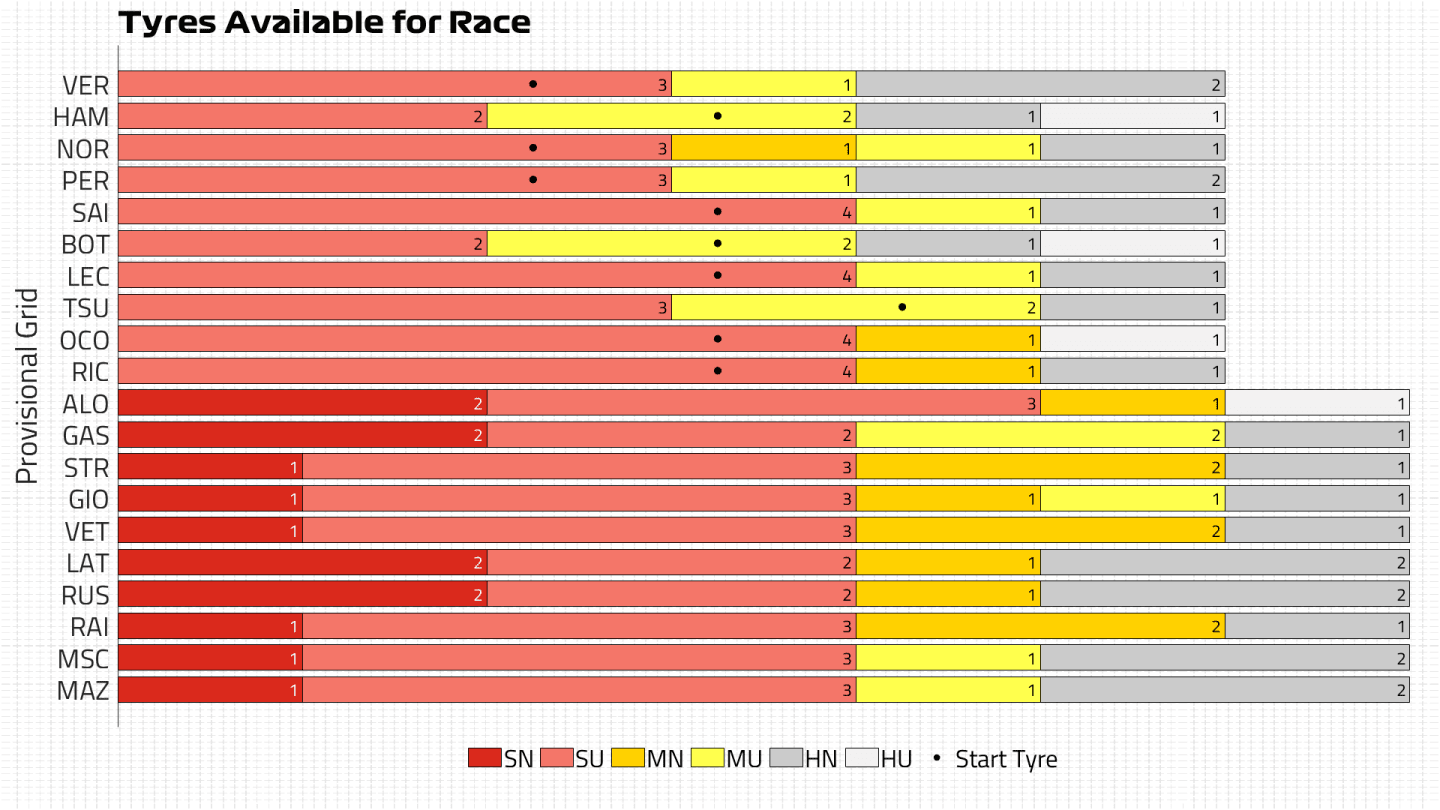
What are the options for the bottom half of the field?
Starting on the mediums is the preferred option given the additional flexibility it provides, but some might opt for the softs to try and take advantage of the extra grip on the opening lap to gain crucial track position.
The outlier would be starting on the hard tyre. While the hard here is the C3 compound – the middle of the Pirelli range – it still struggles with warm-up compared to the other two options, and temperatures could be particularly low after a slow formation lap followed by sitting on the starting grid.
So for any driver thinking of going long with an opening stint on hards, they’re likely to be out of position at the back and willing to gamble rather than risking track position higher up in the midfield. That means we’re once again looking at the Aston Martin, Alfa Romeo, Williams and the solitary Haas of Mick Schumacher (with Nikita Mazepin having been ruled out of the race after contracting Covid-19) as the main candidates for such a strategy.
READ MORE: Mazepin ruled out of Abu Dhabi GP after positive Covid-19 test
Starting on the hard would allow a long first stint that would need to reach Lap 30 before a switch to mediums would be realistic, providing good pace in the second stint. A well-timed Safety Car would also benefit this strategy, but an early one would prove costly unless a driver has two sets of hards available to them – and only the Mercedes, Red Bull, Williams and Schumacher have that.
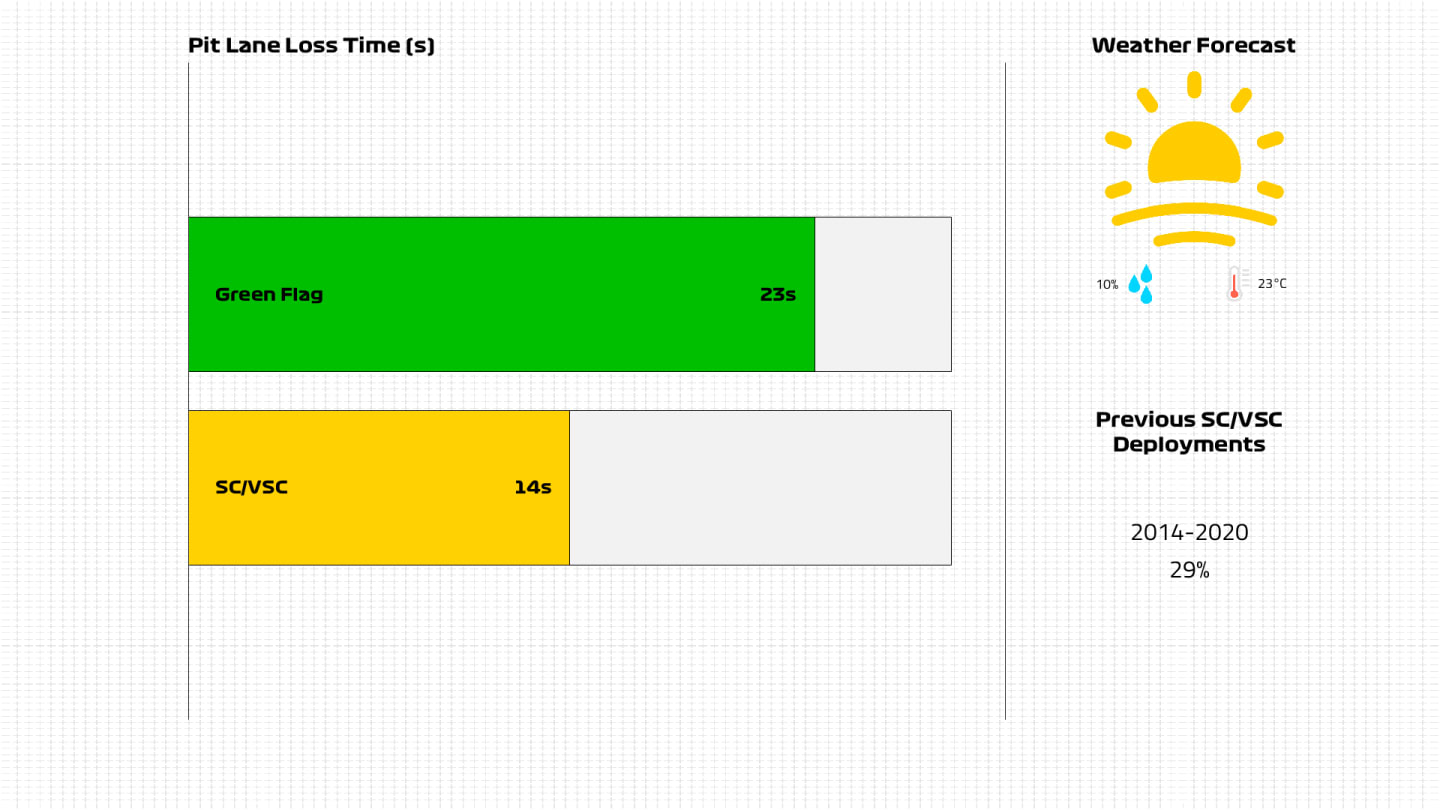
Wait, but what’s the weather doing?
One of the upsides of finishing the season in the Middle East is a slightly easier strategic outlook for the teams who don’t have such big concerns about the weather conditions. Wind can play a major role in the handling of the cars but rain is rarely seen, and it’s no different in Abu Dhabi this weekend.
The forecast for Sunday is for another warm and sunny day, with as good as no chance of rain and temperatures close to 30C ahead of the race start but dropping as the sun sets.
The challenge for the drivers is dealing with the change in track conditions as the sun goes down and the temperature drops, with the car balance changing as a result. Most long running was done in similar conditions on Friday but we sometimes see a car that is more competitive when it’s hot losing competitiveness the longer the race goes on, or conversely one that struggles in the heat coming on strong later in the Grand Prix.
YOU MIGHT ALSO LIKE
News Alonso thankful to avoid ‘massive crash’ after ‘super scary’ brake failure that ended his race in China
FeatureF1 Unlocked 5 Winners and 5 Losers from China – Who finished the Sprint weekend in style in Shanghai?
News Opmeer claims victory as F1 Sim Racing World Championship continues in Mexico City
FeatureF1 Unlocked THIS WEEK IN F1: 10 quiz questions on the Chinese Grand Prix and the latest F1 news

